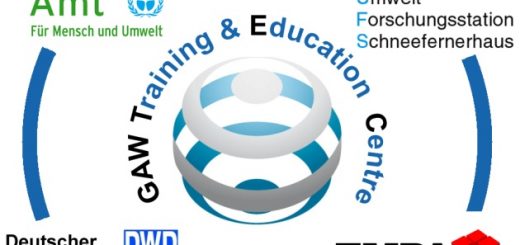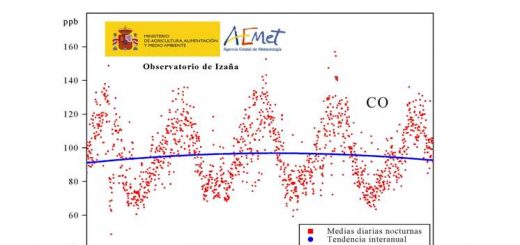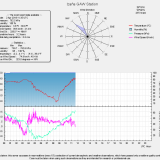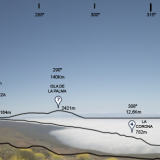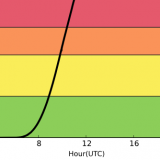NEW PUBLICATION: Impact of dust deposition on the marine biogeochemistry and climate, Environmental Science and Technology. Can dust and marine biogeochemistry trigger a climate feedback?
The journal Environmental Science and Technology publishes (volume 46) a new study which reviews our knowledge on how dust deposition influence on the marine biogeochemistry and climate. This paper includes the deliberation of the experts of the World Meteorological Organization, the working group of GESAMP (Group of Experts on the Scientific Aspects of Marine Environmental Protection), several universities and research centres (including Izaña Atmos`pherioc Research Centre), in the workshop performed in Malta from 7 to 9 March 2011. Dr. Sergio Rodríguez (Izana Atmospheric Research Center –AEMET) is co-author of this paper.
Dust emissions to the atmosphere range with 500 and 1500 teragrams/year. Sources are mostly located in the so-called ‘dust belt’, which extends throughout North Africa, Middle East, Central and South Asia to China. Secondary sources are placed in South and North America, Namibia and Australia. About 25% of these dust emissions deposit on the ocean. It is considered that dissolution of dust on the ocean release key elements that may influence on marine productivity, e.g. iron and phosphorus, among other. This marine biomass may influence on the budget of atmospheric carbon dioxide and consequently on climate. This influence of dust should be included in the models for a proper forecast of future climate. However, new atmospheric and marine observations and improvements in modelling are necessary. The publication includes a set of proposals for improving our knowledge on this field.
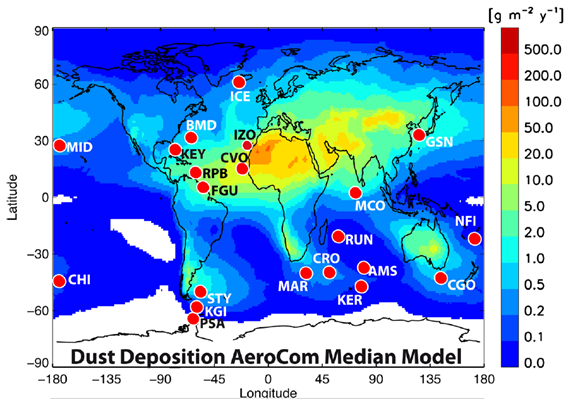
Study:
|
Title: Atmospheric Transport and Deposition of Mineral Dust to the Ocean: Implications for Research Needs. Publication: Environmental Sciences and Technology, 46, 10390−10404, 2012 Authors: Michael Schulz, Joseph M. Prospero, Alex R. Baker, Frank Dentener, Luisa Ickes, Peter S. Liss, Natalie M. Mahowald, Slodoban Nickovic, Carlos Pérez García-Pando, Sergio Rodríguez, Manmohan Sarin, Ina Tegen, Robert A. Duce. |

